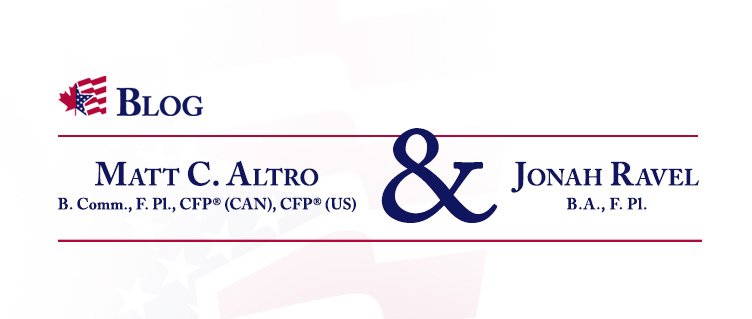The 2015 budget changes that the Conservative government in Canada recently announced included some goodies aimed at casting the Conservatives in a favourable light with middle-class Canadians come election time later this year. In addition to a welcome change to the Registered Retirement Income Fund (RRIF) withdrawal formula which aims to help senior citizens over 71 years old reduce the risk of outliving their capital, another government “gift” was the not-entirely-unexpected increase to Canadians’ Tax Free Savings Account (TFSA) contribution room, almost doubling the $5,500 limit to the new amount of $10,000, which the Finance Minister and the Canada Revenue Agency jointly confirmed comes into effect immediately.
At first glance this substantial increase to the amount that Canadians can now save up tax-free might seem like great news for savers and investors alike, but it does raise a caution flag for those Canadians who have ties to the US, such as citizenship or residency, and who are therefore also considered “US persons” by the US tax authorities at the Internal Revenue Service (IRS). Many of these Canadians, including American citizens currently residing in Canada and Canadian citizens planning to move to the US, might be unaware that a TFSA is not considered tax-free from a US perspective. Similar to the US tax treatment of Canadian Registered Education Savings Plans (RESPs) but unlike Registered Retirement Savings Plans (RRSPs), US persons who hold TFSAs cannot elect to defer the taxation of income earned inside the plan: all accrued income, i.e., interest and dividends, and all capital gains that occur within a TFSA are considered taxable income in the US, which must be reported to the IRS annually. Failure to report the income annually can lead to steep retroactive penalties and interest charges.
To add an extra layer of cost and complexity for US persons who hold TFSAs, even though the IRS has not chosen to be explicit on this point, they are most likely to regard TFSAs as they do RESPs, i.e., as a type of foreign trust known as a “foreign grantor trust,” which entails more complex filing requirements for US taxpayers (Forms 3520 and 3520A need to be submitted annually).
From a cross border perspective, this “gift” of a bigger savings opportunity for Canadians in the form of increased TFSA contribution room may actually turn out to be a bigger trap in disguise, potentially leading to harsh penalties down the road for US persons with TFSAs who have not been compliant with their IRS reporting obligations. This negative outcome would far outweigh any supposed “tax-free” benefit in Canada that they otherwise thought could be enjoyed. For this reason, the financial planners at MCA Cross Border Advisors generally recommend to our US citizen and resident clients to steer clear of TFSAs entirely and to liquidate any existing ones in favour of other investments. For any cross border inquiries related to TFSAs or to other investment or retirement planning, MCA Cross Border Advisors Inc. is prepared to answer your questions.

